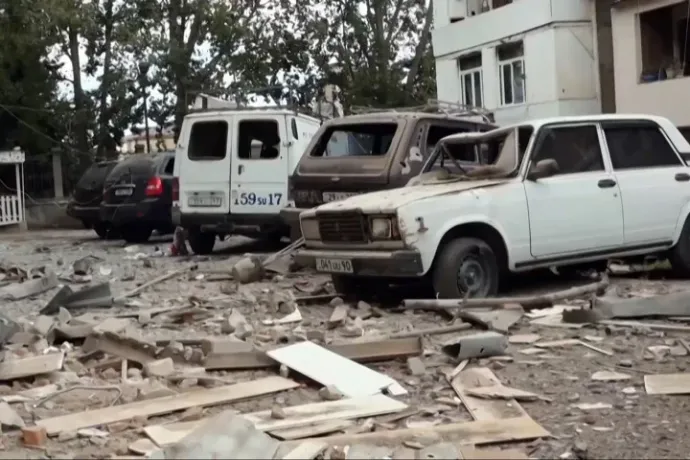Joint statement of EU 27 condemning Azerbaijan’s attack on Nagorno-Karabakh prevented by Hungarian veto
According to a statement of Radio Free Europe’s journalist published on X (formerly known as Twitter), and the Azerbaijani news agency Trend, the former citing three different EU sources, the latter referring to diplomatic sources, a statement on Nagorno-Karabakh could not be issued on behalf of all EU member states due to the Hungarian government blocking the move.
As previously reported, the Azerbaijani army launched an offensive in the Armenian-majority separatist Nagorno-Karabakh on Tuesday, and the Armenian forces in the region surrendered the next day.
Borrell: The EU condemns Azerbaijan's operation
The EU's quasi-Foreign Minister issued a statement on the situation on Thursday, but Rikard Jozwiak of Radio Free Europe said it was originally meant to be released on behalf of the 27 member states. In the document, issued by the High Representative for Foreign Affairs and Security Policy Josep Borrell, the EU condemns Azerbaijan's military operation against the Armenian population of Nagorno-Karabakh. It calls on all parties to stop the hostilities and respect the ceasefire. It warns that Azerbaijan is responsible for the security of the Armenian population in the region, adding that
"the forcible displacement of civilians by military or other means" will receive a "strong response" from the EU, which is ready to take "appropriate measures".
It is not at all unusual for similar declarations to be issued without the participation of all member states, but only on behalf of the others or only on behalf of the head of the institution concerned. This was the case at the last EU summit of Heads of State and Government, when the Hungarian and Polish Heads of Government did not endorse the part listing the conclusions on migration – which is not, in fact mandatory to do. That statement was eventually issued separately, on behalf of Charles Michel, who chaired the summits, along with the Hungarian and Polish objections.
This makes it unlikely that the EU will take any meaningful action
However, whether it is issued on behalf of all member states is not an insignificant detail of this current declaration. The EU can only impose sanctions if all governments agree unanimously, so if not all governments are backing the document threatening with a 'strong response', Azerbaijan has little reason to fear actual punitive measures.

According to Euronews and Politico, during Wednesday's debate in the European Parliament, several MEPs brought up the possibility of sanctions, but this is not for MEPs to decide. Thijs Reuten, a member of the EP's foreign affairs committee, also suggested suspending last year's EU-Azerbaijan energy deal (which is part of the EU's effort towards achieving independence from Russian gas.)
European Commission spokesman Tim McPhie recalled on Friday that according to last year's deal, Azerbaijan had increased gas supplies to the EU from 8.1 billion cubic metres in 2021 to 11.3 billion cubic metres last year, with a target of 20 billion cubic metres annually by 2027.
Szijjártó: Several countries made proposals, no consensus was reached
Hungarian Foreign Minister Péter Szijjártó reacted on Facebook, saying that "there were several fake reports circulating yesterday about an EU statement on the situation in Karabakh. The truth is that
along with several other member states, Hungary also had comments and proposals concerning the joint statement, but no consensus was reached, which is why the EU High Representative issued the statement in his own name."
Szijártó did not say whether it was one or more countries which prevented a full consensus and, if the former is the case, whether Hungary was the only dissenting party. In any case, “Hungary's position is clear here as well: peace is needed instead of war, and after many years and decades it is time to end the suffering of the people of Karabakh. But
unilateral statements are not helping.”
To a question from Eurologus, the European Commission replied that internal processes, such as decisions on when and how the EU reacts to foreign policy issues, are confidential.
Hungary and Azerbaijan are key strategic partners
After meeting Azerbaijan's President Ilham Aliyev in January, Prime Minister Viktor Orbán announced that Hungary had raised the level of cooperation with Azerbaijan to the level of a key strategic partnership. The two also held talks during the illiberal mini-summit organized by Orbán around this year's 20 August celebrations. Bilateral ties were strengthened after Hungary extradited Ramil Safarov, known as the "axe murderer", to Azerbaijan in 2012.
For more quick, accurate and impartial news from and about Hungary, subscribe to the Telex English newsletter!